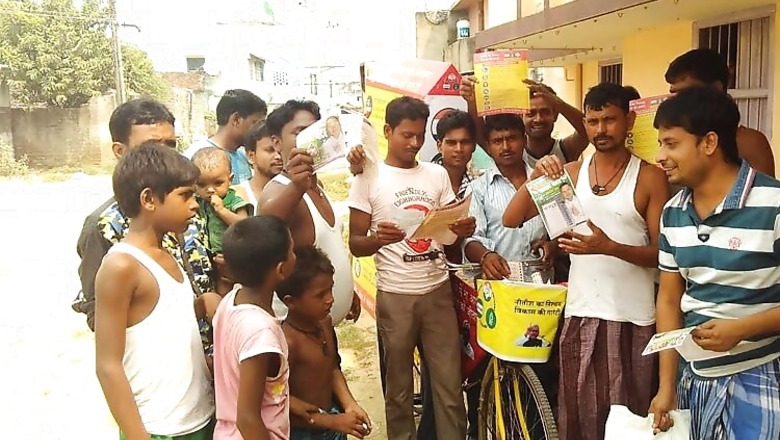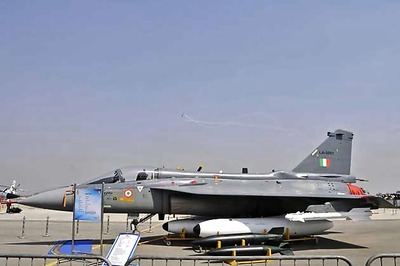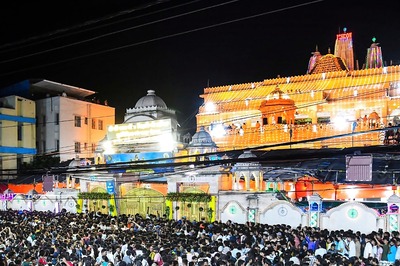
views
Patna: Tucked away in a western corner of Patna is a group of villagers, where residents live precariously right next to the new Pataliputra railway station, but Bihar's growth trajectory seems to have bypassed them.
Displaced and marginalised for over two decades, the community of about 500 Hindu and Muslims families from the underprivileged class have developed contempt for all "vote-seeking" politicians as they struggle everyday with no access to water or sanitation facilities.
Assembly election in Patna is due on Wednesday and campaign has reached a fever pitch, but neither the seasoned voters nor the first-timers from this motley community in Teshlal Verma Nagar are excited about the Bihar polls.
Life is hard for these people, especially the women who still have to travel quite a distance, navigating treacherous paths and railway tracks to-and-fro to fetch water for the families.
Putuli Devi, a fragile looking woman her early 40s, gets agitated and saddened at the mention of voting.
"They (politicians) only use us every election. They beg for our votes and then never show their faces or do anything for us poor. For fetching water, I still have to go on foot to the new housing colonies that have come up on the opposite side of the tracks, but even they are located at distance, and how long can we beg for water from other people," she rues.
Devi, belongs to Dusadh caste, and rest of the families also belong to scheduled or backward castes like Mallah, Beldar, Paswan, Ravidas.
Pataliputra Junction, which was inaugurated a few years ago, falls on the new Danapur-Digha-Sonepur rail-cum-road bridge and Railway Minister Suresh Prabhu through a video link from New Delhi had flagged off trial run of an engine on the line.
Mohammed Saleem, 70, claims that the villagers settled in the area in the 1990s and once the work on the new station began, their hutments were evicted, following which they filed a petition in a court, and after the station was built, "we shifted right next to it, abutting the canal, over which the new road line is coming from Khagaul."
Most of these houses are built like bunkers, as during storms and high-monsoon rains, the weather gets choppy and blows off the roofs.
"During bad weather and storms, we just jump inside and hold on to bamboos or whatever we can hold on to. Sometimes, our thatched roofs get blown away in the wind, but this bunker-like design helps us survive the ravages of weather," said Nasima Khatoon, another resident.
"We want water and sanitation at least, because women and girls have to go out and defecate in the open. Men too have no option, as there are no toilets, not even public conveniences," she said, adding, "a proper school would be our third property".
The 'Swachh Bharat' Abhiyan of the Centre seeks to end open defecation in the country by 2019, by building adequate number of toilets. According to Union Ministry of Drinking Water and Sanitation's recent report, states like Bihar, Punjab, Andhra Pradesh have lagged behind in construction of toilets.
Asked if they would choose NOTA option to voice their dissatisfaction with the poltical class, the general reply will be "what is that thing, I have never heard of it".
Sakaldip Paswan, 75, who has voted in many Assembly and general elections, including the last Lok Sabha polls, is oblivious of the 'NOTA option' available for voters.
"NOTA kya hota hai babuji, hum to kabhi nahin sune hayn (what is a NOTA sir, I have never heard of it)," he said.
Saleem, who makes earthen stoves during festive seasons and sells utensils in exchange of old clothes in other seasons, for livelihood, says, "We are too busy with our hard lives, trying to earn bread, and no one has told us (about NOTA). So, how do we know about it."
But, he later adds, "We may be angry but finally, we will have to decide to vote for someone. We cannot let our vote go wasted (vote to giraiybe karenge, khali kahe la jaaye denge)".
Teshlal Verma Nagar is located in the western side of Patna, near Rukanpura area that falls off the famous Bailey Road of the capital.
Constituency-wise, it comes under Digha Bihar Assembly seat, considered a crucial one, alongside, Bankipur, Kumrahar, Patna Sahib, Danapur, among other seats.
Digha has 31 candidates in the fray while from neighbouring Danapur seat, 13 candidates are testing their electoral fortune.
With at least three-four adults in each household, this community adds up to over 1500 votes, a number that could be a deciding factor for the Digha battle.
Awaiting a better future, the old members of the community sleep on cots laid right in the middle of the track, while children play on the platforms of unused Pataliputra Junction, a name that symbolises the glory and prosperity of ancient capital of Patna.


















Comments
0 comment